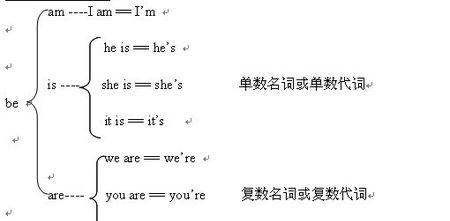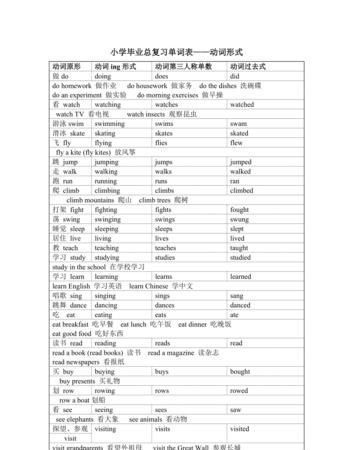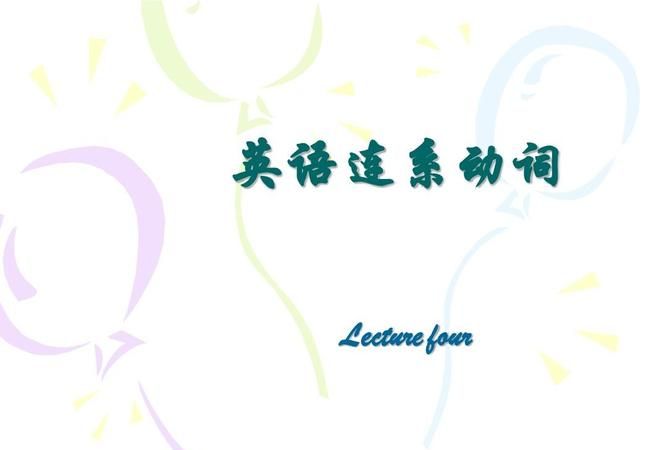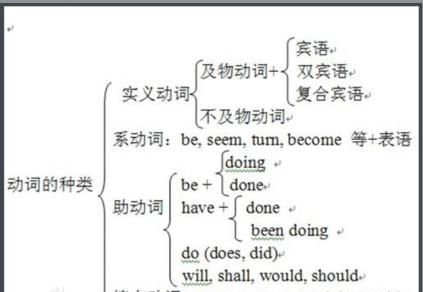本文目录
系动词是什么意思
(1) 状态系动词:只有be一词.
(2) 持续系动词:表示主语继续或保持一种状况或态度,主要有keep,remain,stay,rest,lie,stand.如:
He always kept silent at meeting.他开会时总保持沉默.
The door remained closed.门仍然关着.
He stayed single.他仍然是单身.
(3) 表像系动词:表示“看起来好像”,主要有seem,appear,look等.如:
He looks tired.他看起来很累.
He seems (to be) quite happy.他好像很快活.
He appeared quite well.他显得身体相当好.
(4) 感官系动词:表示“……起来”,有feel(摸起来,感觉) ,smell(闻起来) ,sound(听起来) ,taste(尝起来,吃起来) 等.如:
This kind of cloth feels very soft.这种布摸起来很软.
It sounds good idea.听起来不错.
This food tastes good.这菜好吃.
(5) 变化系动词:表示主语变成什么样,主要有become,grow,turn,fall,get,go,come,run如:
He became mad.他疯了.
She had grown thinner and thinner.她越来越瘦了.
The milk will soon turn sour.牛奶很快就会变酸.
Several people fell ill.几个人生病了.
We get wiser as we get old.随着年岁的增长,我们也变得聪明些了.
She went pale at the news.听到这消息,她脸色变得苍白.
(6) 终止系动词:主要有prove,turn out(结果是,证明是) 等.如:
His story proved false.他讲的情况原来是假的.
My intuition turned out to be correct.我的直觉证明是对的.

扩展资料:
系动词,也称联系动词(Linking Verb),是用来辅助主语的动词。它本身有词义,但不能单独用作谓语,其后必须跟表语,构成系表结构说明主语的状况、性质、特征等情况。
在英语中,系动词的功能主要是把表语(名词、形容词、某些副词、非谓词、介词短语、从句)和它的主语联系在一起,说明主语的性质、特征、品性或状态。它有自己的但不完全的词义,不能在句中独立作谓语,必须和后面的表语一起构成句子的谓语。它虽是虚词,但是其用法是复杂的,而且不可忽视。
注意事项:
系动词本身有一定的词义,不能单独作谓语,后面与表语连用。复习系动词时,必须注意以下几个问题:
1.系动词be是最重要的,主语不同,be的形式也不同,且有时态的变化。
通常表示主语的特征、状态和身份等,后面接形容词、副词、名词、介词短语、不定式、v-ing、过去分词及表语从句作表语。
特别要注意“由be+过去分词”所构成的系表结构与“由be+过去分词”所构成的被动语态的区别。
前者侧重于表示主语的特征或所处的状态,通常没有由by引导的介词短语。
如:The door was closed.
后者侧重于强调主语是谓语动词所示动作的承受者,表示动作;句中可以用由by引导的介词短语。如:The door was closed by me.
还要注意“由be+ V-ing所构成的系表结构与“由be+ V-ing”所构成的进行时态的区别。
前者侧重于说明主语具有的特征或存在的状态,也可说明主语是什么。如:My job is teaching English.
后者侧重于强调主语正在做某事。如:Mr Wang is reading an evening paper now.
2. 要注意由行为动词转化成的系动词。
表示人体感官的系动词有sound,taste,look,feel,smell等,后面接形容词;
表示主语从一种状态转变到另一种状态的系动词有become,get,go,turn,run,grow,come,fall,prove等,后面接形容词、名词或 to be+形容词,become后面接单数名词时,名词前要用不定冠词,turn后面接单数名词时,名词前不用不定冠词;
表示主语继续或保持某种身份、特征或状态的系动词有continue,keep,remain,stay,stand lie,rest,stay等,后面接表示状态的形容词;
表示判断的系动词有seem和appear,后面接形容词、to be+名词或形容词、that-clause、不定式等。
3. 要注意系动词的固定搭配。常见的有come true, fall asleep, fell ill, go bad, come right, run wild, wear thin, turn nasty等。
4. 要特别注意某些动词既可以做系动词,又可以做实义动词的用法。
系动词部分主要注意:其后要求接形容词,而不是副词做表语。遇到这种情况,只能先根据其意思判断清楚到底是前者还是后者,然后再对后面的词性和词义做出正确判断和选择。以taste一词为例:
The newly-invented soft drinking tastes quite unique.(这种新研制的软饮料尝起来挺独特的。注意:在这句话里,taste做系动词,不能使用进行时,后面接形容词。)
The chief is tasting the fish carefully.(厨师长正在品尝这道鱼。注意:在这句话中,taste做实意动词,可以使用进行时,并且后面接副词做状语。)
参考资料:百度百科-系动词
系动词有哪些英语单词
系动词词义不完整,在句中不能单独使用(除省略句外),后面必须接有表语,系动词和表语一起构成合成谓语。常见的系动词大致可分为三类。
第一类:表示特征或状态的,有 be, look, feel, seem, appear, smell, taste, sound, turn out(结果是、证明是)等。
You'll be all right soon.
You don't look very well.
I feel rather cold.
He seems to be ill.
It appears that he is unhappy.
The roses smell sweet.
The mixture tasted horrible.
How sweet the music sounds!
The day turned out (to be)a fine one.
第二类:表示从一种状态到另一种状态的变化,有become, get, grow, turn, fall, go, come, run 等。
He became a world-famous scientist.
It is getting warmer and warmer.
It grew dark.
The food has turned bad.
Yesterday he suddenly fell ill.
Mary's face went red.
His dream has come true.
The boy's blood ran cold.
第三类:表示保持状态的,有keep, remain, continue 等。
Keep quiet, children!
The weather continued fine for a long time.
It remains to be proved.
系动词后的表语可以是名词、代词、数词、形容词、分词、动名词、不定式、副词、介词短语、词组、从句,系动词 be 可用于上述所有情况。如:
The people are the real heroes. (名词)
That's something we have always to keep in mind. (代词)
She is often the first to come here. (数词)
She is pretty and wise. (形容词).
The news was surprising. (分词)
His job is teaching English. (动名词)
The only method is to give the child more help. (不定式)
I must be off now. (副词)
The bridge is under construction. (介词短语)
That would be a great weight off my mind. (词组)
This is why he was late. (从句)
系动词的使用特点:
1、所有的系动词都可接形容词作表语,此处略举数例。
Our future will be beautiful.
She looks unhappy today.
Do you feel cold?
You seem / appear ill.
The food tastes delicious.
The weather is turning / growing / becoming / getting cold.
He often went hungry.
2、能用名词作表语的系动词有:be, become, turn, sound, remain, seem 等。
He was a postman six years ago.
He has become a famous doctor.
He turned traiter to his country.
That sounds a good idea.
He remains an ordinary worker.
He seems a stranger to me.
3、能用不定式作表语的系动词有:appear, seem, get, prove, remain 等。She appears / seems to be very young.
He appears / seems to have caught cold.
They got to be friends.
The theory proved to be right.
Much remains to be done.
4、能接从句的有:be, seem, appear, sound, look 等。
That's why he fell ill.
My idea is that we should help him.
It seems / appears to me that something is wrong.
It sounds to me as if someone were trying to get into the house.
Your voice sounds as if you had a cold.
It looks as if it is going to rain.
5、能接介词短语的有:be, feel, look, sound, taste, remain 等。
be 是特别活跃的系动词,其后可接很多介词短语作表语。
He is at home / in the library / on the way home / on holiday.
The police are after him.
He is at work on a new invention.
He found the girl was in tears.
They are on duty / on strike / on leave.
The road is under repair.
其它系动词能和介词搭配的范围很小,如:
It feels like a rain.
It looks like a rain.
It sounds like a train going under my room.
It tastes of apples. 这有苹果的味道。
The concert remains in my memory.
6、能接分词的系动词有:be, become, get, grow, seem, appear.
His report was surpring / disappointing / delighting / moving / astonishing …
The boy was moved / delighted / surprised / disappointed / astonished.
He has become / got / grown / interested in modern physics.
He seems / appears drunk.
系动词后接的其它东西,如代词、数词、动名词、副词、词组,基本都是 be 的用法,其它系动词几乎不能这样用或用法很少,这里就不再多讲了。

变化类系动词都有哪些
1.表感官的系动词:look, sound, taste, smell, feel(这些词用形容词作表语)
2.表似乎的系动词seem, appear
3.表变化的系动词:become, get, turn, grow, make, come, go, fall, run
4.表依旧的系动词:remain, keep, stay, continue, stand, rest, lie, hold
5.可带名词作表语的系动词:become, make, look, sound, fall, prove, remain, turn(该词后接的单数名词前多不用冠词。如:He turned teacher.)
6.如果读者对于这个语法现象还是不怎么理解的话,可以以这个名句为例子学学:the man who dies rich dies disgraced.在巨富中死去,是一种耻辱。其中的rich and disgraced 是说明主语的性质的。
1)状态系动词 用来表示主语状态,只有be一词,例如:
He is a teacher. 他是一名教师。(is与补足语一起说明主语的身份。)
2)持续系动词 用来表示主语继续或保持一种状况或态度,主要有keep, rest, remain, stay, lie, stand, 例如:
He always kept silent at meeting. 他开会时总保持沉默。
This matter rests a mystery. 此事仍是一个谜。
3)表像系动词 用来表示"看起来像"这一概念,主要有seem, appear, look, 例如:
He looks tired. 他看起来很累。
He seems (to be) very sad. 他看起来很伤心。
4)感官系动词 感官系动词主要有feel, smell, sound, taste, 例如:
This kind of cloth feels very soft. 这种布手感很软。
This flower smells very sweet. 这朵花闻起来很香。
5)变化系动词 这些系动词表示主语变成什么样,变化系动词主要有become, grow, turn, fall, get, go, come, run. 例如:
He became mad after that. 自那之后,他疯了。
She grew rich within a short time. 她没多长时间就富了。
6)终止系动词 表示主语已终止动作,主要有prove, turn out, 表达"证实","变成"之意,例如:
The rumor proved false. 这谣言证实有假。
The search proved difficult. 搜查证实很难。
His plan turned out a success. 他的计划终于成功了。(turn out表终止性结果)
注意:可带名词作表语的系动词be, become, make, look, sound, fall, prove, remain, turn后接的单数名词 前多不用冠词。
7)系动词无被动语态:appear,be,become,fall,feel,get,grow,
keep,look,remain,seem,smell,sound,stay,taste,turn 如:
It sounds good.

什么词可以充当系动词
系动词是辅助主语的动词,本身不能单独作谓语,要与表语构成谓语,说明主语的状态,性质等。
常见的系动词是be (am/is/are)
像某些感官动词如taste、sound、look、smell也可做系动词。

以上就是关于小学常见的系动词 ,系动词是什么意思的全部内容,以及小学常见的系动词 的相关内容,希望能够帮到您。
